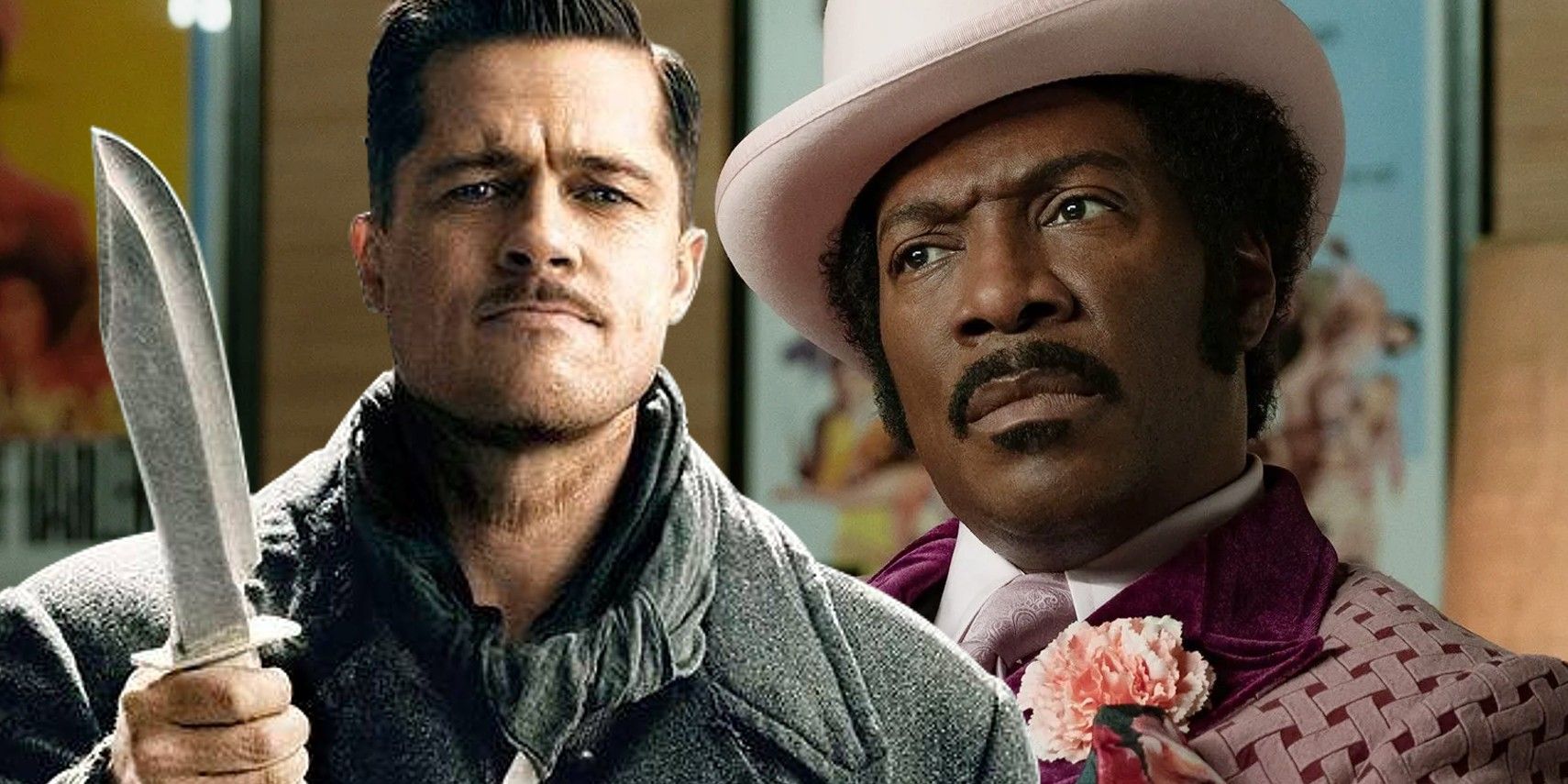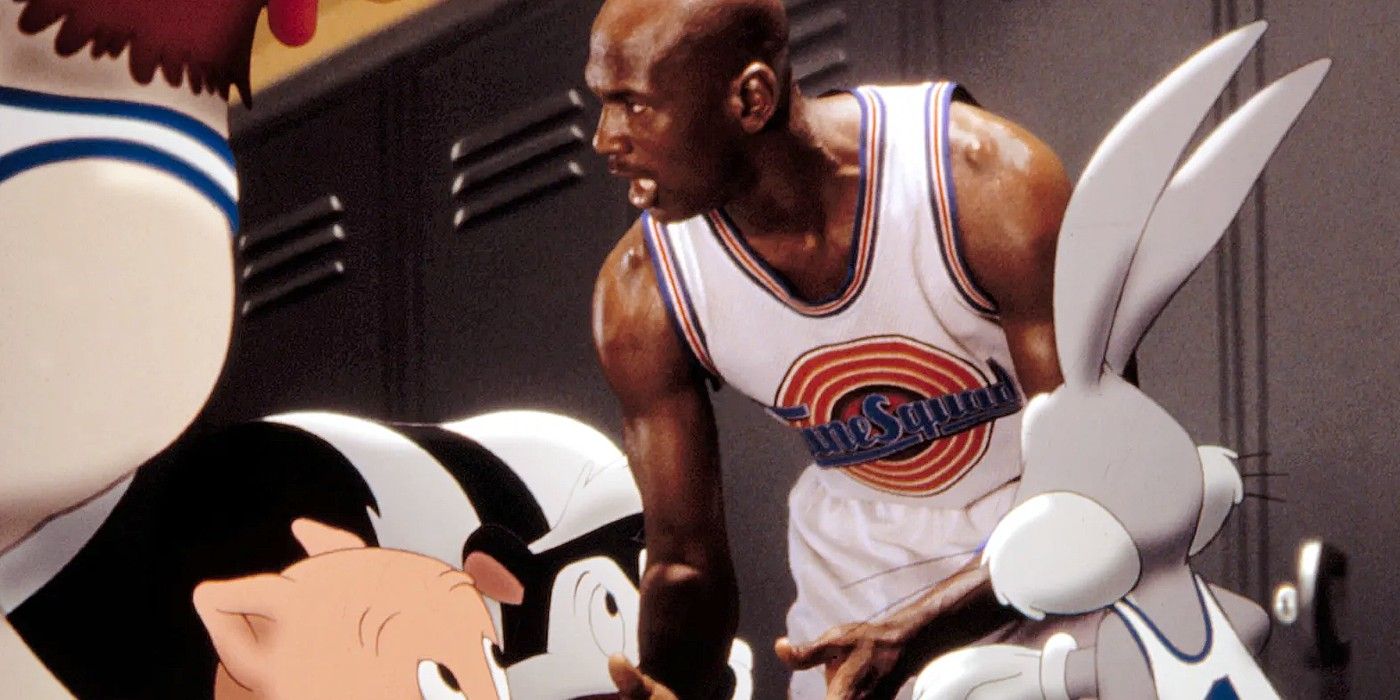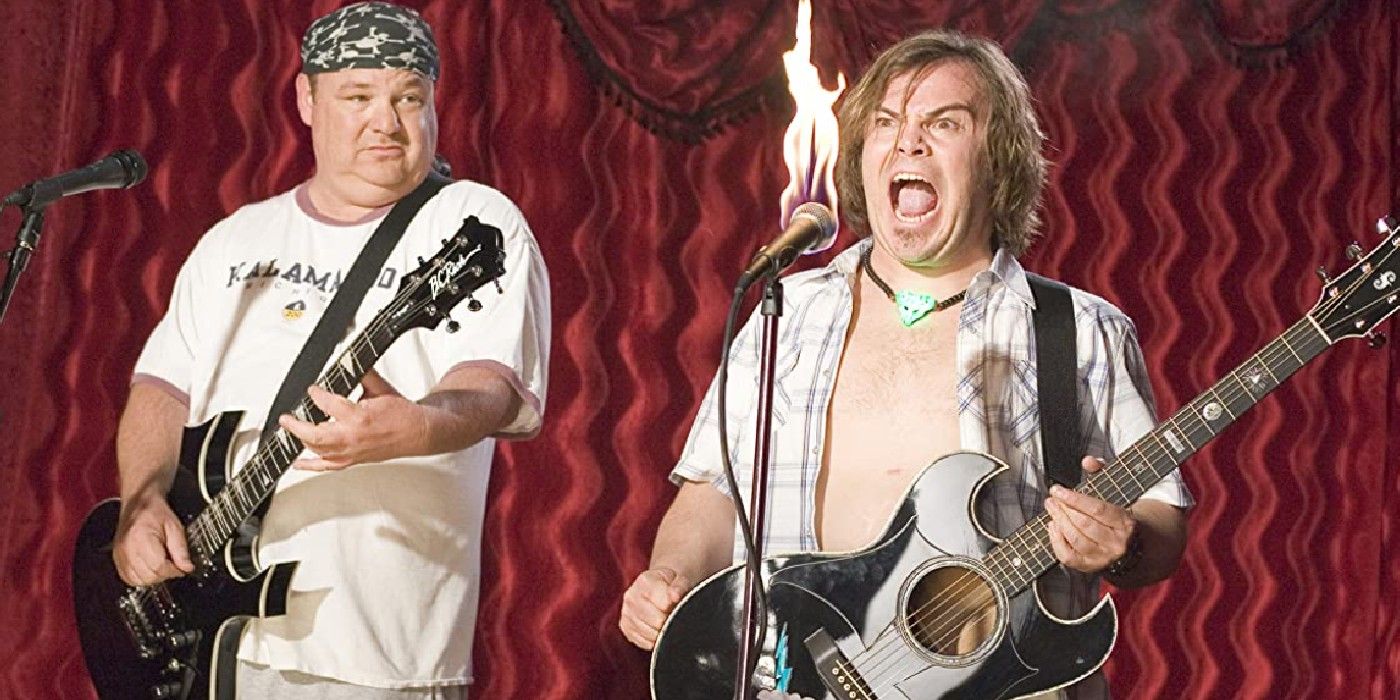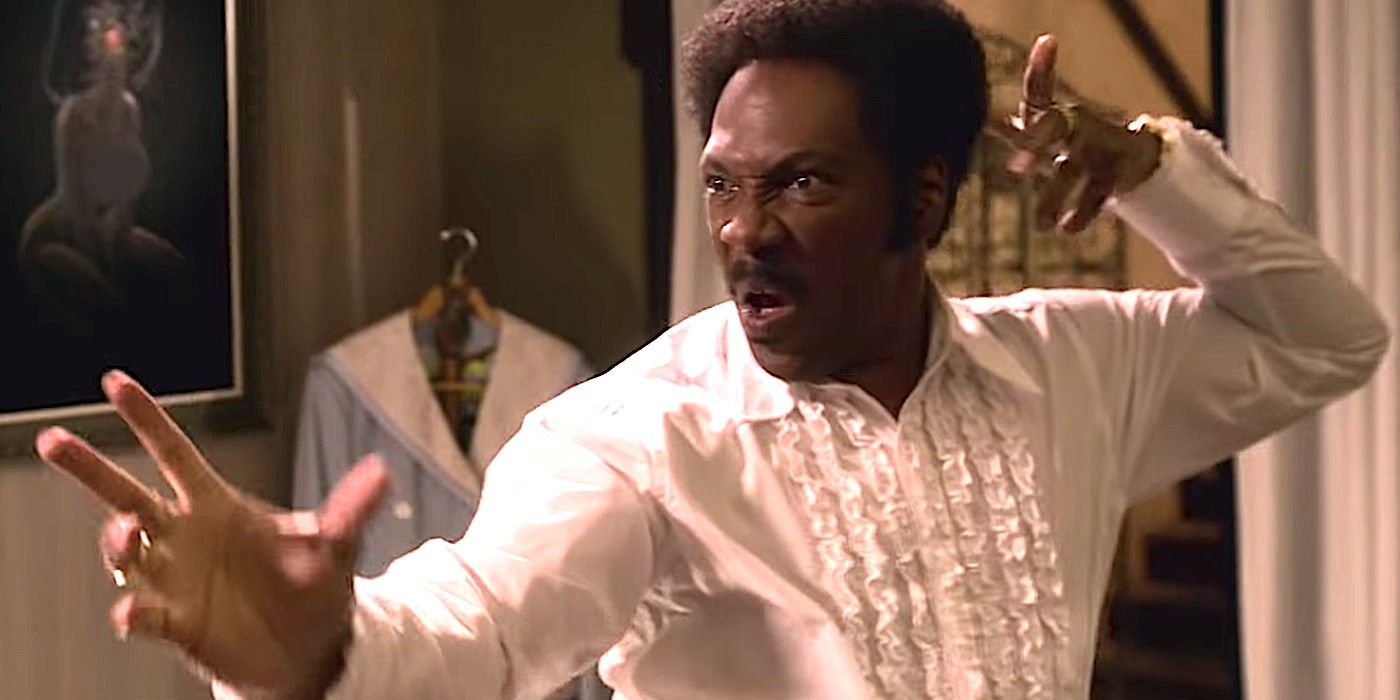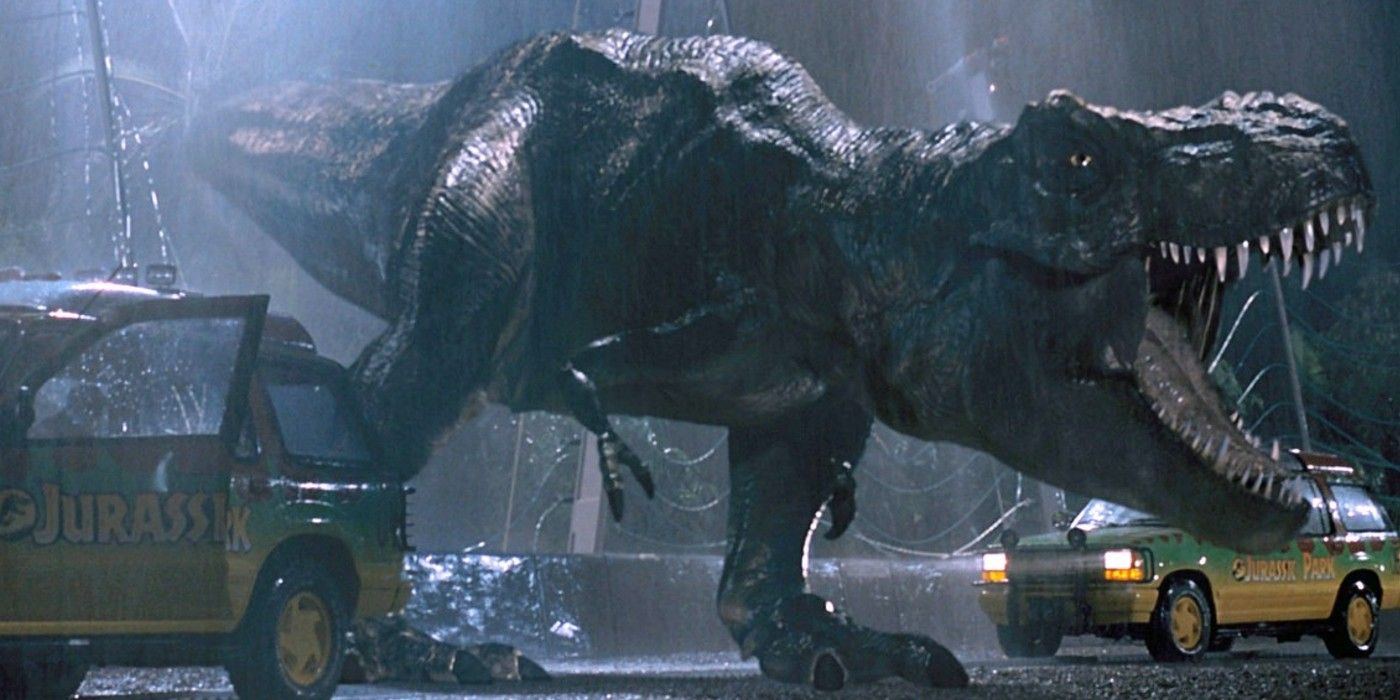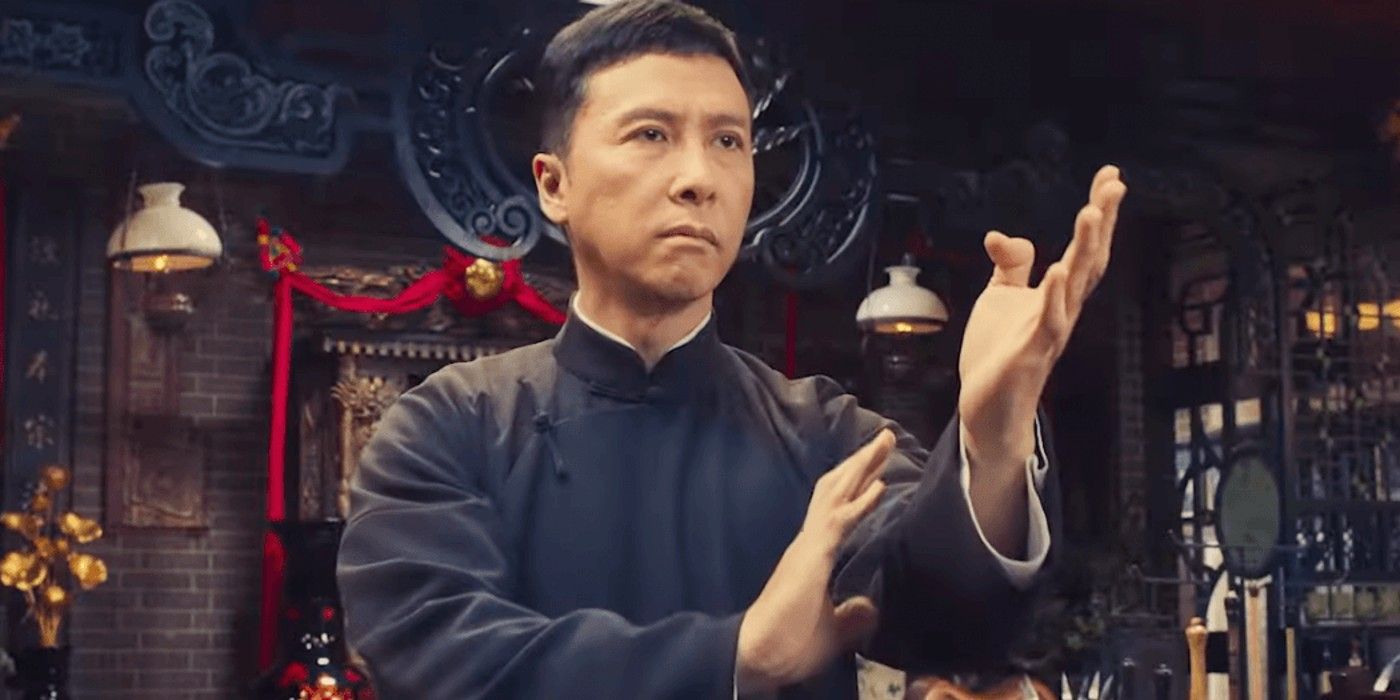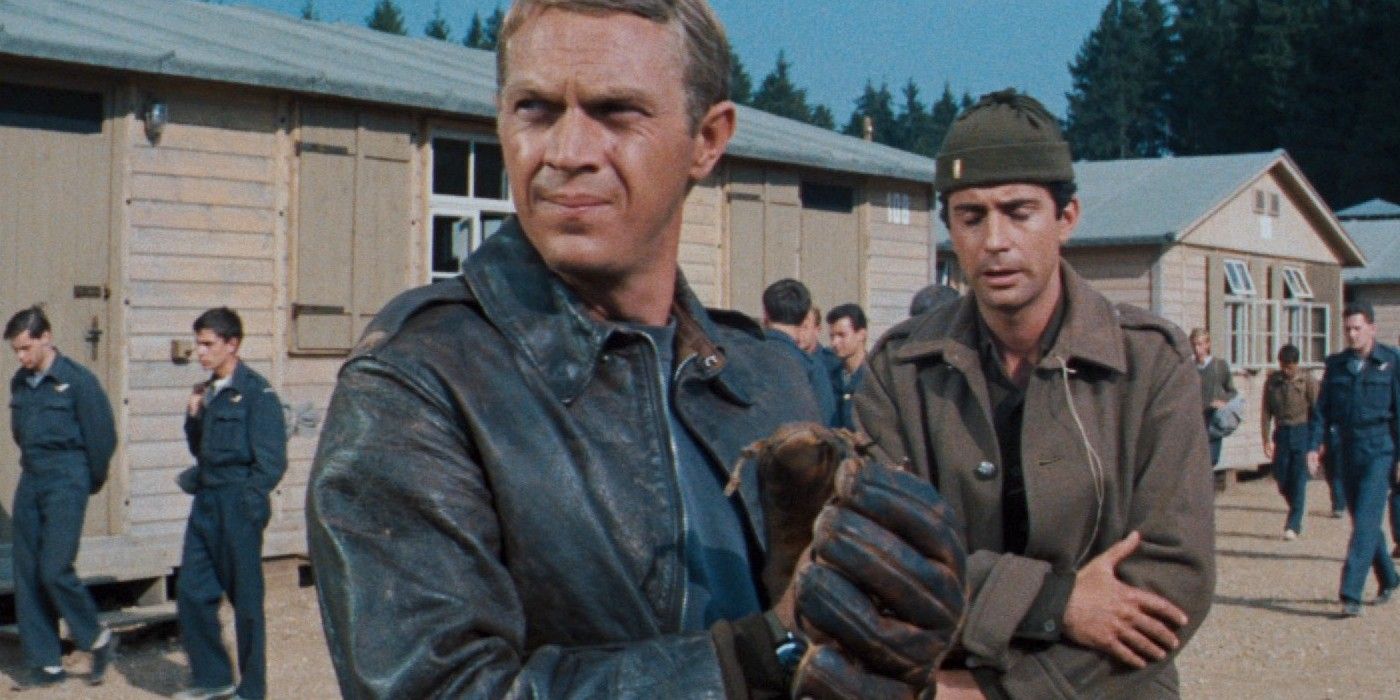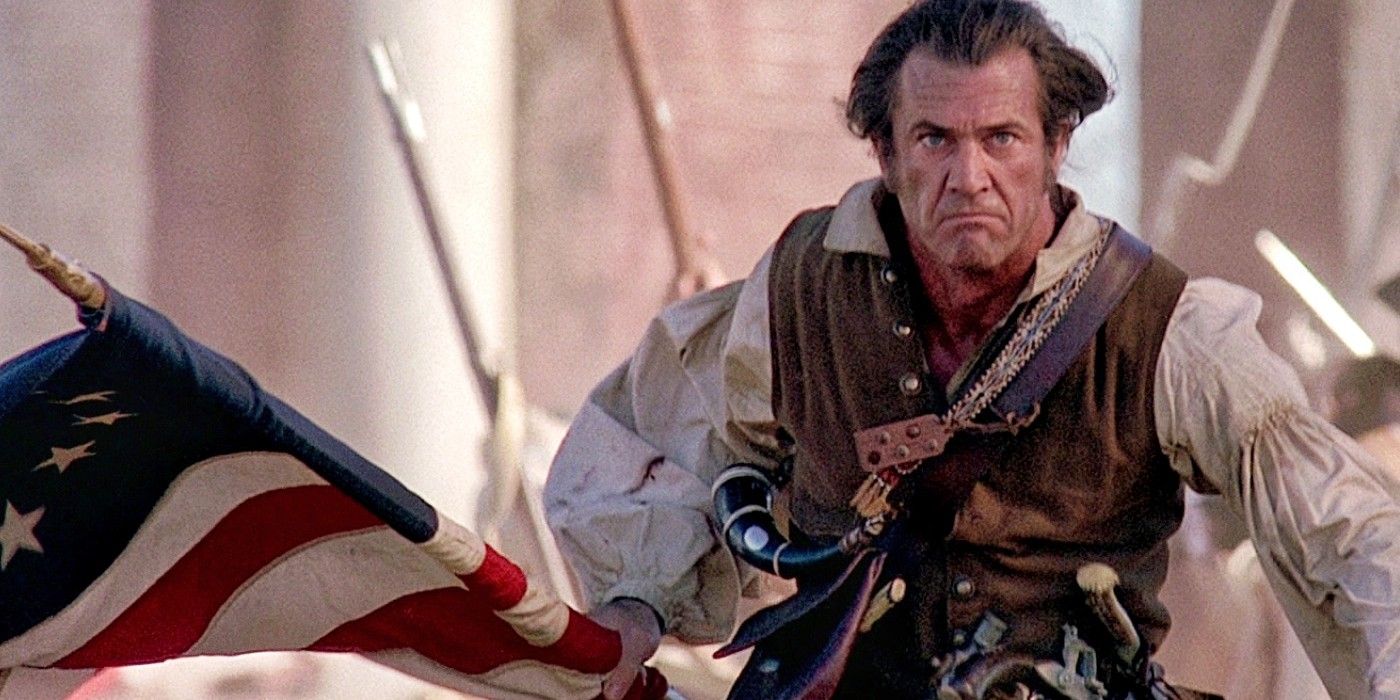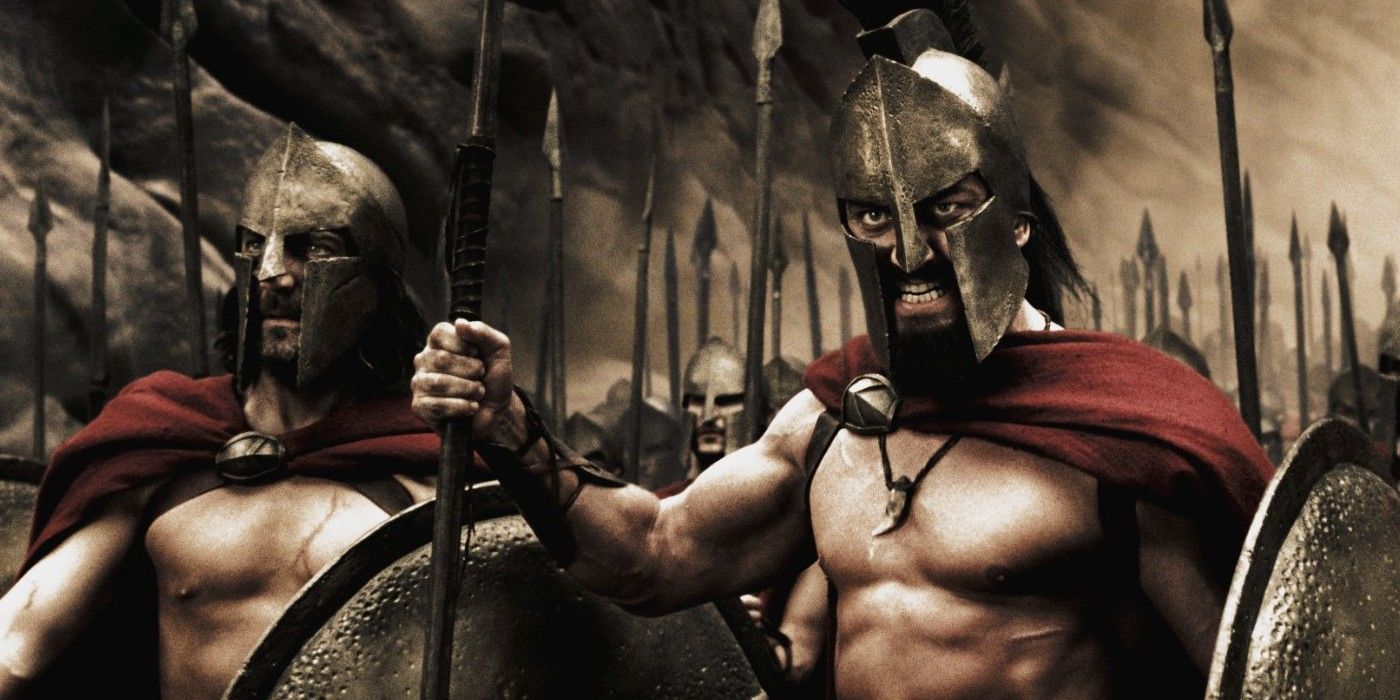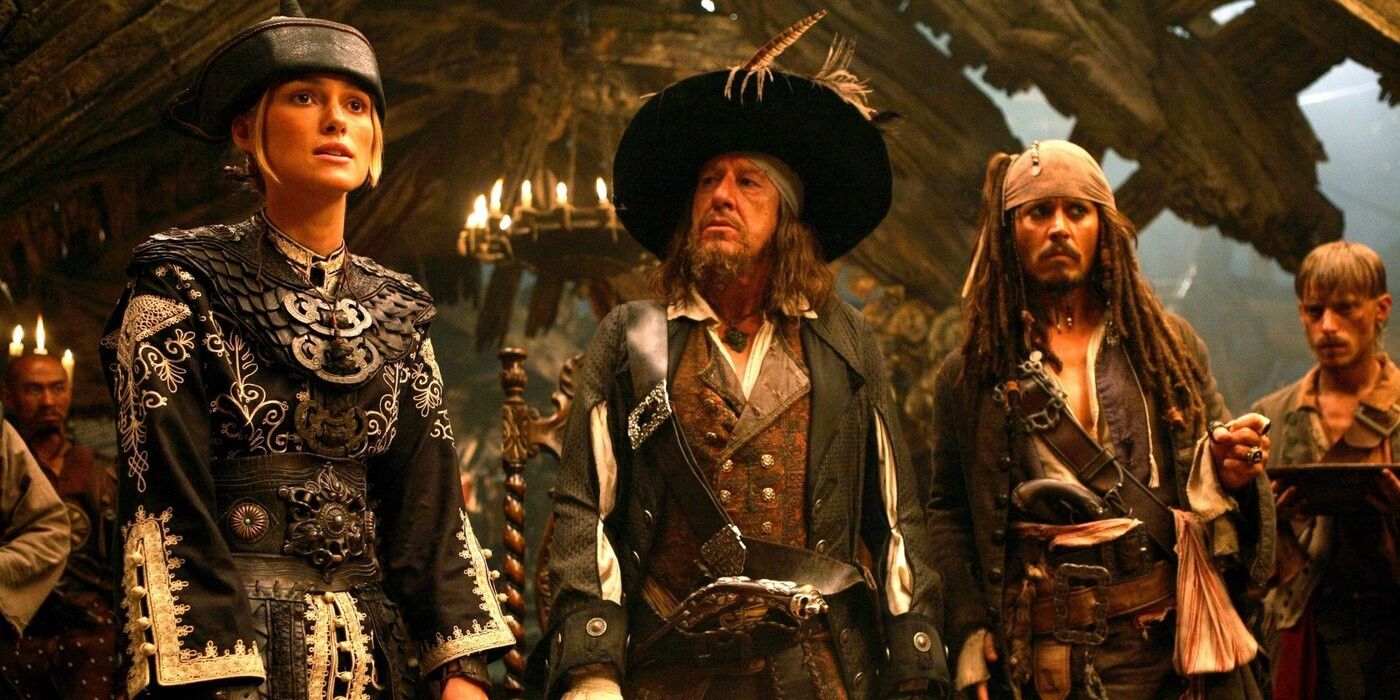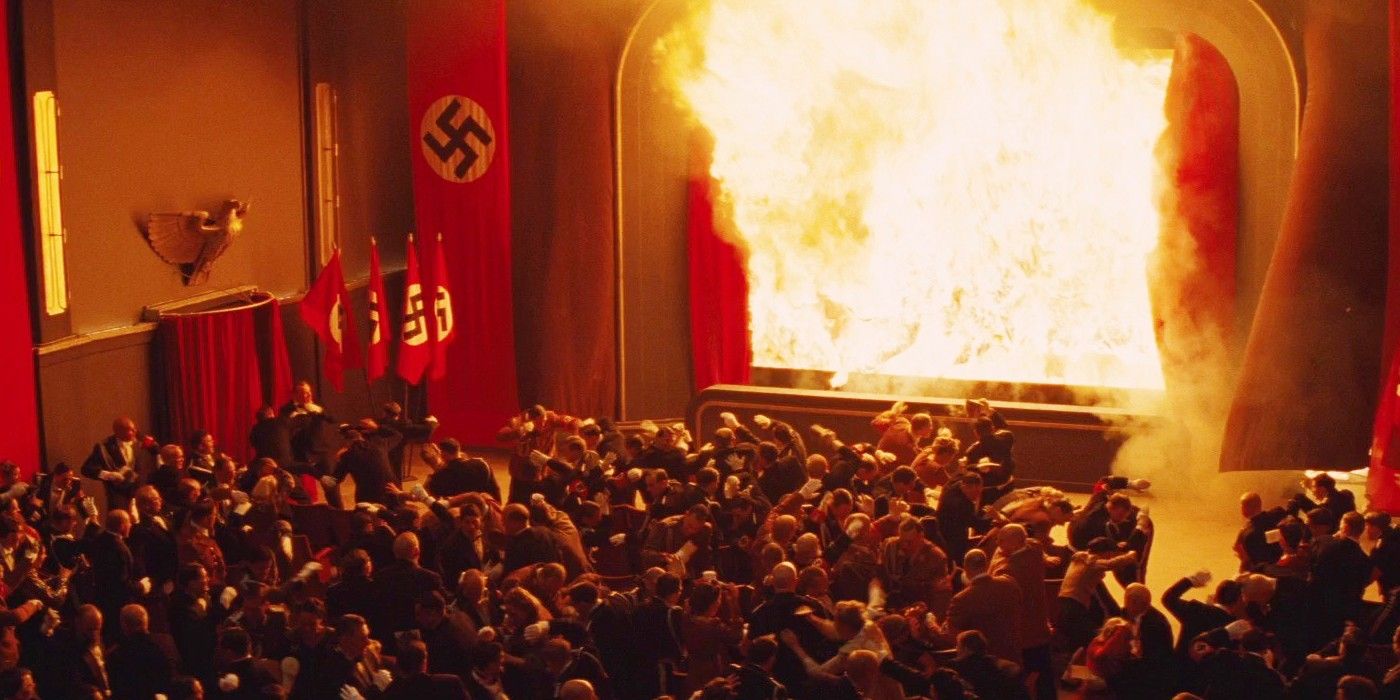It's common knowledge by now that few, if any, historical movies are 100% historically accurate. This isn't always such a bad thing, though, as some changes are necessary for both pragmatic and creative reasons.
That being said, some movies actually benefited from deviating from the annals of history. Whether it's a celebrity's biopic or a recreation of a pivotal period of human civilization, these movies did themselves a favor by making up their own histories.
10 Space Jam Rewrote Michael Jordan's Athletic Comeback
In 1993, Chicago Bulls' star and basketball legend Michael Jordan announced his retirement from the NBA. Besides burnout, a major factor behind Jordan's decision was the death of his father, who he was very close to. After two years, Jordan came back and led the Bulls to yet another historic three-peat championship from 1996 to 1998.
According to Space Jam, Jordan came back because only his basketball skills could save the Looney Tunes. Afterwards, Jordan's athletic passion was rekindled thanks to Bugs Bunny and friends. As simplified as its depiction of Jordan's motives were, Space Jam wouldn't be as well-remembered (ironically or otherwise) if not for its absurdity and audacity.
9 Tenacious D In The Pick Of Destiny Revealed The Band's Epic Origins
Despite first meeting in 1986, Jack Black and Kyle Glass formed their famous comedy rock duo Tenacious D in 1994. Before they started making music together, the two overcame some initial animosity and other troubles, like being broke. According to their fictionalized biopic, though, they joined musical forces to save the world from Satan.
Tenacious D In The Pick Of Destiny was a prequel to the duo's namesake HBO show, which was also a humorously fictionalized account of their lives and careers. Though the movie accurately recreated some of the duo's hardships and starred the musicians as themselves, it's still a highly fantasized and sensationalized retelling of their humble beginnings.
8 Dolemite Is My Name Compressed The Makings Of Two Rudy Ray Moore Movies
Blaxploitation legend Rudy Ray Moore is best known for making and starring in Dolemite and its sequel The Human Tornado. But according to his biopic, Dolemite Is My Name, he made them simultaneously. Scenes from The Human Tornado were shown being filmed for what would be Dolmeite, with no distinction made between the two.
This and the production's abridgment were done for pacing's sake and didn't negatively affect the legacies of either movie. Additionally, Rudy (who was around 48 at the time) was portrayed by the almost 60-years-old Eddie Murphy. Fans didn't mind, since they jokingly took more issue with Murphy's high-pitched voice clashing with Rudy's iconic baritone.
7 The Jurassic Park Franchise Defined The Movie Dinosaur
In 1993, Jurassic Park sparked widespread interest in paleontology thanks to its scientifically accurate and approved dinosaurs. Since then, the franchise set the bar for the ancient animals' onscreen depictions. The thing is, the science the filmmakers used was retroactively debunked decades later. For example, it's now believed that dinosaurs were feathery, not scaly.
To reflect the updated science, Jurassic Park III featured more scientifically-accurate feathered dinosaurs - much to the chagrin of viewers. Despite being disproven, the original designs were brought back for Jurassic World. It's worth noting that the sixth movie, Jurassic World: Dominion, strikes a balance between both looks.
6 The Ip Man Franchise Turned Bruce Lee's Mentor Into A Mythic Hero
Before he was immortalized as the martial arts legend that he is today, Bruce Lee was a student of the Wing Chun grandmaster Ip Man (or Yip Man). Ip Man's rise as a martial artist during the most turbulent parts of China and Hong Kong's histories are worth studying, but few, if any, of his actual struggles were covered by his namesake series.
The four mainline Ip Man movies adapted his life broadly, prioritizing his (fictionalized) adventures over accuracy. Notable omissions include Ip Man's family life and his alignment with the democratic Kuomintang. The series was never made to be a historical document, and they certainly succeeded as a period action-packed saga.
5 The Great Escape Compressed Many Allied POWs' Stories Into An Ensemble Cast
In 1944, around 250 Allied prisoners of war in Stalag Luft III planned an elaborate mass escape. Unfortunately, only 76 managed to escape the prison, while only 3 actually made it out of Germany alive. The events of the escape were chronicled by Paul Brickhill, and his book was used as the basis for The Great Escape, though a lot of changes were made.
For one, American POWs were given a larger presence when the real escape was a predominantly British one. Additionally, some POWs' identities were changed for security reasons, while others (especially Capt. Virgil Hilts) were composites of various POWs. The end result was one of the most iconic ensemble casts ever seen in Hollywood's classic age.
4 The Patriot Became An All-American Guilty Pleasure
When it comes to the Revolutionary War, The Patriot is often cited as one of the conflict's most inaccurate and even all-time worst reenactments. Besides demonizing the British and romanticizing the Continental Armies to such a cartoonish degree, the movie got many key dates wrong and controversially depicted British atrocities that never happened.
That being said, it's for these exact reasons that The Patriot is a historical guilty pleasure. Blockbuster director Roland Emmerich's American epic is rife with inaccuracies and mistakes, but it's still undeniably entertaining and rousing. Whether it's enjoyed genuinely or otherwise, Benjamin Martin's revolutionary saga is the kind of epic that's rarely seen today.
3 The 300 Duology Revitalized The Classic Historical Epic
After Gladiator, filmmakers tried and failed to bring back the historical epic. Zack Snyder succeeded with 300, an adaptation of Frank Miller's fictionalized take on the Greco-Persian Wars. By prioritizing artifice and style above all else, 300 and its sequel/prequel Rise Of An Empire modernized the swords-and-sandals epic and ushered in a new visual trend.
That being said, the Greeks' stylized wars sparked fierce controversy. At best, historians saw the movies as inaccurate and juvenile on every level. At worst, countries like Iran banned them. Iran takes immense pride in its past as Persia, and they viewed the Persian Empire's villainous depiction in 300 to be insensitive and offensive.
2 The Pirates Of The Caribbean Franchise Showed Piracy's More Fantastical Twilight
Besides fantastical elements like zombies and Davy Jones, one of Pirates Of The Caribbean's biggest historical changes was giving piracy a more fanciful twilight. In reality, piracy's golden age petered out after navies and conglomerates like the East India Trading Company crushed the pirates. In Capt. Jack Sparrow's adventures, the pirates united and made a last stand.
Here, piracy didn't just survive the navies' encroachment but defeated it. Though magic was dying or being destroyed as seen after At World's End, classic piracy had yet to be eradicated. Thanks to these changes and even in light of Johnny Depp's controversies, Pirates Of The Caribbean remains one of the most unique blockbuster franchises ever made.
1 Inglourious Basterds Reimagined World War II As A Gory Fairy Tale
World War II has been one of the movies' favorite subjects for decades, especially those of the fictional kind. In fact, it could be argued that there are more fictitious WW2 movies than accurate ones. This hit its apex in Quentin Tarantino's Inglourious Basterds, which was basically his idealized version of the war's end in the European front.
The movie had many deviations, with the biggest being Nazi Germany's collapse when its high command (including Adolf Hitler) was assassinated in a theater in the June of 1944. Inglourious Basterds was never intended to be a faithful account, and it gave the nightmarish war the closest thing to a happily cathartic ending as anyone could watch onscreen.

